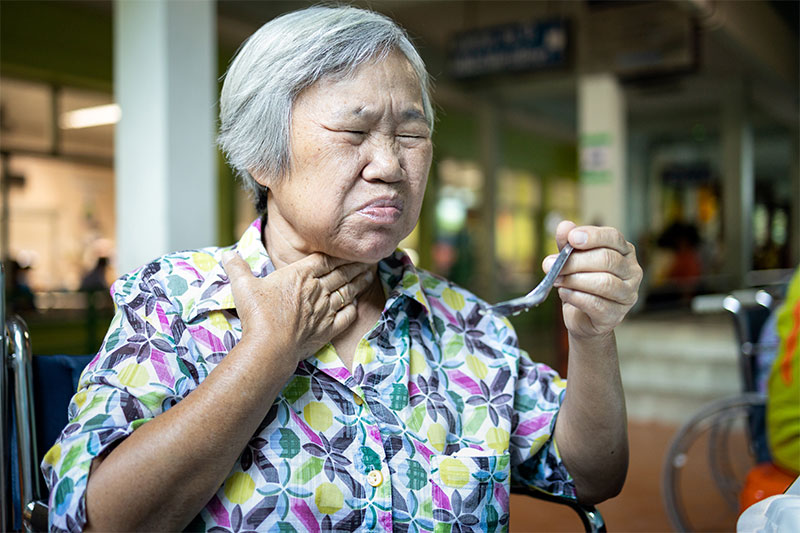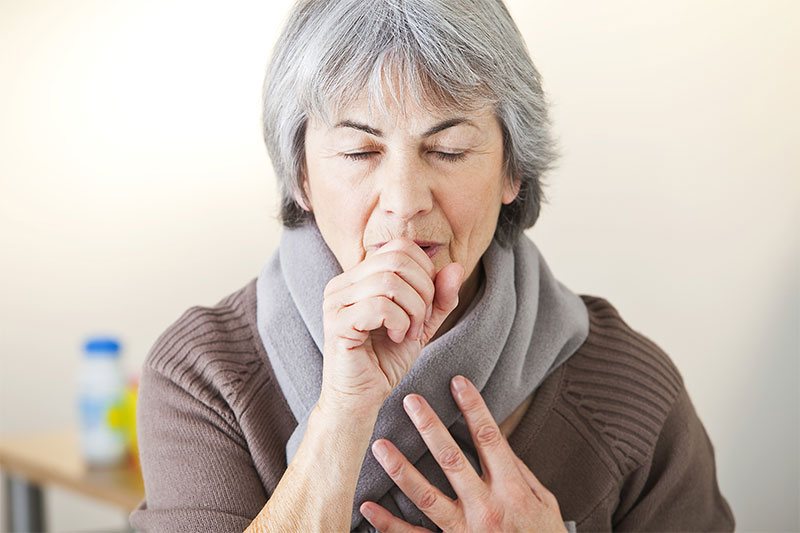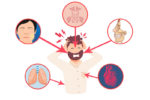Experts like Marry Daly, MD, oncologist, and head of the department of clinical genetics at Fox Chase Cancer Centre in Philadelphia say that women are generally more serious about their regular medical check-ups and cancer screenings. But this is not always so, especially in the case of young women, who falsely possess the notion that only older people get affected by cancer and ignore any symptoms of it.Hannah Linden, MD, a medical oncologist, who is the joint associate member of the Fred Hutchinson Cancer Research Center and associate professor of medicine at the University of Washington School of Medicine, Seattle says in this regard that some people also think that there is no point in going for the screenings, as cancer is incurable in any case.

Ranit Mishori, MD, assistant professor of family medicine at Georgetown University School of Medicine in Washington D.C. says that people should not be unduly alarmed about the symptoms.
Taking into account this propensity of people to ignore the symptoms of cancer, which is mainly due to a fear psychosis; we sought the opinions of experts, as to what are the potential symptoms of cancer that should be checked out without being overly concerned about them.
Following are the 15 symptoms that women generally neglect:
#15 – Weight Loss without any apparent reason

“If you lose weight without any apparent reasons like regular exercise, strict diet control, then it could be a symptom of cancer. It could also be due to an overactive thyroid, but doctors conduct CT scans of different organs to eliminate the possibilities of cancer.” Mishori says.
#14 – Bloating

Bloating, although a common phenomenon, when occurs persistently for a few weeks, could also be due to ovarian cancer. Pelvic or abdominal pain, the feeling of fullness even after eating little food and the unreasonably urge to pass urine at short intervals are the other symptoms of ovarian cancer. In such conditions, doctors do a meticulous case study and conduct a blood test and CT scan to make the diagnosis.
#13 – Changes in the breast

Apart from the lumps, thickening of the skin along with rashes that remains for weeks also constitutes the symptoms of breast cancer. Similarly, in case of any changes in the shape of the nipples or any discharge, even when you are not breastfeeding, consult your doctor. If the nipples are inverted conically, then there is no problem but, if they turn in, instead of pointing out and any other changes in their shape could be a concern.
In such cases, your doctor will do a thorough check-up and conduct tests like ultrasound, mammogram, MRI, and possibly a biopsy.
#12 – Irregular and unusual bleeding

Women before their menopause generally do not give much importance to bleeding in between their periods. But such a condition should be medically examined if you have regular periods. At times, women are also oblivious of the GI tract bleeding, a possible symptom of colorectal cancer. The post-menopausal bleeding could also be due to endometrial cancer.
Debbie Saslow, Phd, director of breast and gynecologic cancer at the American Cancer Society in Atlanta, says in this regard, “The symptoms are case-specific. So, if any bleeding, which is not normal for you, should be noted. Often, the abnormal bleedings are the early symptoms of endometrial cancer, a common gynecological cancer and the abnormal bleeding happens in almost 25 percent of cases.”
The doctors take note of the periodicity of the bleeding and conduct tests like ultrasound and biopsy.
#11 – Any change in the color and texture of the skin

Like the moles, any changes in the pigmentation of the skin should also be noted. Excessive scaling or sudden bleeding on the skin should also be medically examined. Experts say that if such conditions remain for several weeks, then you should consult your doctor.
#10 – Trouble in swallowing the food

In case you find it hard to swallow your food, you start to take to liquid diets like soup or protein shakes. But according to Leonard Lichtenfeld, MD, deputy chief medical officer at the American Cancer Society, difficulty in swallowing could also be the symptom of GI cancer like the esophagus.
Doctors do chest x-ray and examine the GI tract in such cases.
#9 – Any unusual bleeding

“Passing blood in urine or stool could be due to bladder, kidney and colon cancer. Make sure the blood is not due to menstruation and consult your doctor. Don’t be under the impression that it is it from a hemorrhoid,” says Mishori. Likewise, if you are coughing up blood more than once, consult your doctor.
#8 – Depression and pain in the abdomen

Some researches discover a link between depression and pancreatic cancer. So, Lichtenfeld advises going for check-ups if you are depressed and have abdominal pain.
#7 – Digestion problem

Indigestion, though a common problem with many people, when it happens without any apparent cause could be an early sign of cancer of stomach, esophagus, or throat. Doctors will conduct a detailed study of the case history and, based on it, will do the necessary tests.
#6 – Changes inside the mouth

The American Cancer Society advises taking notice of any occurrence of white patches or spots inside the mouth or tongues, as they can be due to leukoplakia that can lead to oral cancer. People who smoke are more prone to develop it. Seek the advice of your dentist or doctor in such a condition.
#5 – Pain

With growing age, everybody gets aches and pains. But, pains at times can also be due to some form of cancer. So, any persistent and unexplained pain should be investigated.
#4 – Any change in the lymph nodes

Linden advises consulting the doctor if the lymph nodes in your neck or armpit swell progressively or develop lumps. The doctor, after thorough investigation, will diagnose the ailments, which can be due to some infection. But if the normal tests are normal, it could be due to cancer, and your doctor will probably conduct a biopsy.
#3 – Fever

Fever that continues unabated without any reason like influenza or any infection may be due to cancer. The American Cancer Society says that generally, people have a high temperature after cancer spreads to other parts of the body. It is also the early indicators of cancers like lymphoma or leukemia. Apart from fever, jaundice, and the change in the color of the stool are also the symptoms of cancer.
The doctors after a thorough examination of the physical condition and history of the patients go for other tests like X-ray, CT scan, and MRI.
#2 – Feeling of exhaustion

Although people feel exhausted due to various reasons, fatigue without any apparent reason can also be an early sign of cancer. People feel exhausted and tired after cancer spreads over the body, but the American Cancer Society states that it can also be the early indicator of some cancer conditions like stomach or colon cancer and leukemia.
1 – Cough

Cough is a minor problem and people generally cough when suffering from allergies, cold, flu or even after taking certain medication. But when it continues for a prolonged period of more than three weeks or a month, then medical advice should be sought.
After examining the medical history, the doctors do a thorough check-up of the throat, the functioning of the lungs and conducts X-ray in case of smokers.


